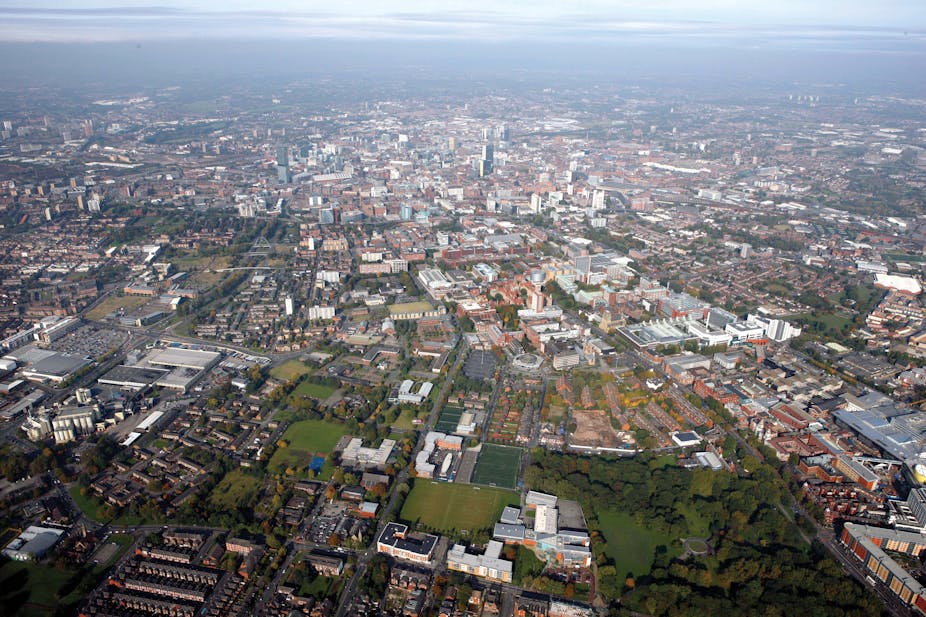Greater Manchester is to get its own directly elected mayor to preside over regional issues. The new mayor will have powers over transport, housing, planning and policing in a devolution deal worth more than £1 billion. “Devo Manc” is part of George Osborne’s plan to boost economic growth in the north of England.
This follows the City Growth Commission’s recent report, “Unleashing Metro Growth”, which recommended that cities should be given more devolved power to improve their economic growth. The report outlined how, if they were to “reach their growth potential”, regional cities could boost total UK output by £79 billion a year.
The task facing the City Growth Commission was a familiar subject that governments of all persuasions have grappled with; that of how should the UK economy be more diverse and less reliant upon London. Devolution has also been given added impetus recently by the referendum over Scottish independence.
Issue of governance
How to govern England’s constituent parts has proved a long-standing conundrum. The idea of Metro Mayors is receiving increasing attention, but the evidence remains inconclusive in terms of what mayors bring in relation to direct links to growth, public service delivery, and as a catalyst for citizen and community engagement.
On the one hand, advocates suggest that a directly elected mayor would create greater local political accountability and raise the profile of cities and city regions.
On the other hand, the majority of voters in English cities overwhelmingly rejected the introduction of elected mayors when given the option in 2012. There are also democratic concerns about concentrating power in the hands of one individual.
But it is no coincidence that Metro Mayors are the preferred model for those who favour managerial urbanism; a concept where civic leaders adopt a style of business leadership. This is despite the fact that cities are more complex social entities than most, if not all, private sector organisations.
What about other cities?
There is a strong Manchester flavour to the City Growth Commission report, which reflects the city’s track record of self-promotion and joint working between local actors, and delivery of development strategies and infrastructure projects.
The report concluded that only two city regions in England (Greater Manchester and West Yorkshire) are ready, at this stage, for further devolution. This has echoes of previous initiatives when Manchester and Leeds were given the special status of “city regions”, but which probably reflects how the two metropolitan areas have been perceived and trusted by government to deliver growth and investment.
Two questions remain, though. First, where do other cities stand in the urban pecking order? And, second, is the process of obtaining formal devolved status, which the City Growth Commission advocates, something that will take other cities, such as Newcastle or Liverpool, years to achieve?
The rocky road to devolution
The Scottish Referendum ignited interest in renewed civic engagement and demands for a different relationship between political institutions, economic decision-makers and citizens. This is a good thing and devolution should benefit economies and communities if carried out appropriately.
Ten years after the North East Referendum on whether to set up an elected regional assembly, devolution within England is now being driven by structural changes to local government institutions and a tweaking of the current political system. At the same time, decentralisation, in its current guise, risks being consumed by a prevailing, but increasingly competitive and austere model of growth and development.
So far, with the City Growth Commission report and Osborne’s Metro Mayors announcement, the emphasis is predominantly on Manchester. But, if we want to see economic prosperity across all parts of the north of England, then other cities will need to play a distinct role too.

